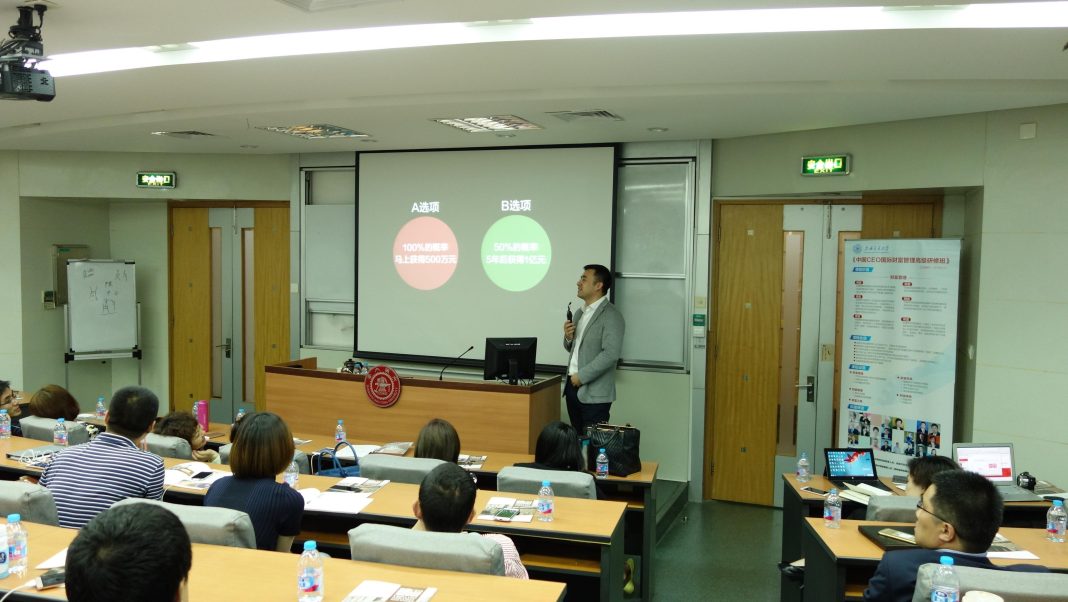In an era where financial landscapes are increasingly complex and unpredictable, affluent families face unique challenges in preserving and growing their wealth. The stakes are high, and the strategies employed must be both sophisticated and adaptable to navigate the intricacies of global markets, tax regulations, and investment opportunities. This article delves into the top wealth management tips tailored specifically for affluent families, offering insights into effective asset allocation, risk management, and legacy planning. By synthesizing expert advice and the latest industry trends, we aim to equip you with the tools necessary to not only safeguard your financial legacy but also to enhance it for future generations. With a confident stride, we explore the critical strategies that can transform financial success into enduring prosperity.
Strategic Asset Allocation for Long-term Prosperity
When considering a path to enduring wealth, affluent families must focus on creating a diversified investment portfolio that aligns with their long-term financial objectives. Strategic asset allocation serves as the cornerstone of this approach, balancing risk and reward by spreading investments across a variety of asset classes. The key is to blend equities, bonds, real estate, and alternative investments in a manner that suits the family’s unique financial landscape and risk tolerance.
Implementing a successful allocation strategy involves several critical steps:
- Understand your financial goals: Clearly define both short-term needs and long-term aspirations to tailor your investment mix effectively.
- Risk assessment: Evaluate the family’s risk appetite, keeping in mind that higher potential returns often come with increased volatility.
- Periodic review and rebalancing: Regularly assess the portfolio to ensure it remains aligned with your strategic objectives, making adjustments as necessary to respond to market changes and life events.
- Tax efficiency: Consider the tax implications of different asset classes and investment vehicles to maximize after-tax returns.
By prioritizing these elements, families can craft a robust investment strategy that not only preserves wealth but also fosters growth for future generations.

Tax Optimization Techniques for Wealth Preservation
For affluent families, strategically managing taxes is crucial in safeguarding wealth. Employing effective techniques can significantly minimize tax liabilities, ensuring that more of your wealth remains within your family. Trusts and estates are instrumental tools in this regard, offering opportunities to defer or reduce taxes. Additionally, leveraging tax-advantaged accounts such as IRAs or 529 plans can facilitate tax-free growth and withdrawals under specific conditions, optimizing your family’s financial landscape.
- Charitable Giving: Engage in planned giving to reduce taxable income while supporting philanthropic goals.
- Asset Location: Place income-generating assets in tax-deferred accounts to delay tax liabilities.
- Family Limited Partnerships: Utilize these structures to shift income to family members in lower tax brackets.
By integrating these sophisticated strategies into your wealth management plan, affluent families can effectively preserve wealth across generations while aligning with their long-term financial goals.

Estate Planning Strategies to Secure Your Legacy
In the realm of securing your legacy, it’s imperative to incorporate a strategic approach to estate planning. Affluent families can benefit immensely from crafting a plan that not only preserves wealth but also reflects personal values and aspirations. Here are some key strategies to consider:
- Trusts: Utilize various types of trusts to manage and distribute assets efficiently. They can offer tax benefits, protect assets from creditors, and ensure that your wishes are carried out with precision.
- Gifting: Implement a gifting strategy to reduce the taxable estate. This can include annual exclusion gifts, charitable donations, or funding education for descendants, thereby enhancing your legacy while minimizing tax liabilities.
- Succession Planning: For family-owned businesses, a detailed succession plan is crucial. This ensures the seamless transfer of leadership and assets, maintaining the business’s stability and success across generations.
Employing these strategies requires careful consideration and collaboration with financial advisors and legal experts to tailor a plan that aligns with your family’s unique circumstances and long-term objectives.

Philanthropic Endeavors as a Tool for Impactful Giving
In the realm of wealth management, integrating philanthropy can serve as a powerful instrument for affluent families aiming to create a legacy that transcends financial gain. By embedding a structured approach to charitable giving within their financial strategies, families can foster sustainable impact while also reaping potential tax benefits. This dual advantage not only enhances personal fulfillment but also reinforces the family’s reputation and values across generations.
To maximize the impact of their philanthropic efforts, affluent families might consider the following strategies:
- Establish a family foundation: This provides a formal structure to manage charitable activities, ensuring alignment with family values and long-term goals.
- Involve younger generations: Engaging children and grandchildren in philanthropic decisions can cultivate a culture of giving and instill financial literacy.
- Leverage donor-advised funds: These funds offer flexibility in charitable contributions while providing immediate tax advantages.
- Align with personal passions: Selecting causes that resonate with family members can increase commitment and satisfaction in giving.



